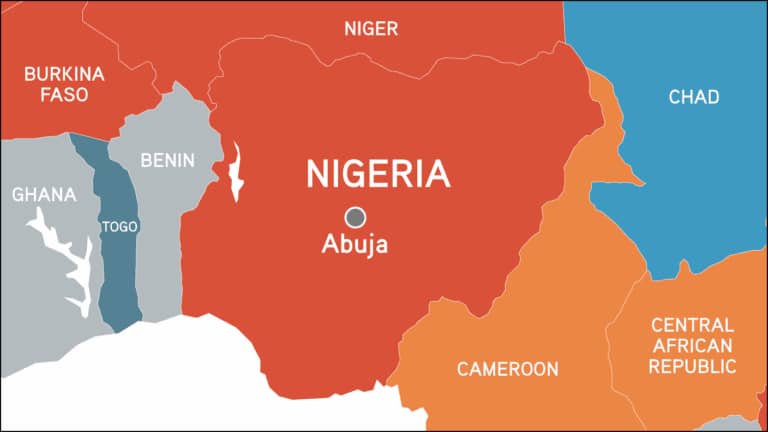By Anamati Inyang 16 Novemder 2025
Nigeria is facing one of its most alarming security crises in decades, with communities across the country trapped between escalating attacks by armed bandit groups and intensified violence from Boko Haram and the so called Islamic State in West Africa. According to the Global Centre for the Responsibility to Protect, millions of civilians remain at serious risk of atrocity crimes as the conflict landscape expands and becomes more complex.
A Nation Under Siege
For more than 15 years, Nigerians have lived through unrelenting waves of violence including mass killings, kidnappings, extortion and displacement carried out by non state armed groups. The UN Office for the Coordination of Humanitarian Affairs estimates that over 7.8 million people, mostly women and children, currently require urgent humanitarian assistance.
In central and north western states, clashes between herders and farmers over shrinking land resources have deepened, giving rise to criminal gangs and violent bandit networks. These groups have perpetrated widespread atrocities, including murder, rape, abductions and destruction of farmlands. Many farmers have abandoned their land entirely due to fear of attacks, worsening food insecurity.
Government counterterrorism operations have also faced criticism. Indiscriminate airstrikes have caused hundreds of civilian deaths, raising concerns about the military’s target accuracy and adherence to international law.
Terror Groups Expand Their Reach
In the northeast, Boko Haram and splinter factions such as ISWAP continue to carry out brutal attacks. Since its insurgency began in 2009, Boko Haram has killed tens of thousands and displaced over two million people. Suicide bombings, abductions, sexual violence, forced marriages, child soldier recruitment and assaults on communities remain common tactics.
Recent intelligence suggests growing cooperation between extremist groups and bandit networks, further endangering rural communities.
Survivors particularly women and girls face severe trauma, stigma and inadequate support, with more than 1,600 children abducted since 2014. In 2024 alone, at least 580 people, mostly females, were kidnapped across several states, with real figures likely much higher.
A Rapidly Deteriorating Security Environment
The National Human Rights Commission reports that at least 2,266 people were killed by bandits or insurgents in the first half of 2025 already surpassing the entire 2024 toll. Borno and Yobe states have seen renewed extremist offensives, including daily assaults on civilians and military posts.
Zamfara State has become the epicenter of banditry, with mass abductions and widespread destruction. In one August incident, gunmen kidnapped more than 100 people. A government raid later killed over 100 members of a criminal gang.
ISWAP’s sophisticated attack in May on military installations and towns in Borno marked one of the group’s most coordinated operations in years. In September, militants killed more than 60 civilians in Darul Jamal a community that had only recently welcomed back displaced residents.
Inter communal violence in Plateau and Benue also continues to escalate, with hundreds killed this year alone.
Deepening Fragility and Complex Risks
Nigeria’s armed forces remain overstretched, deployed in two thirds of the country. The proliferation of armed groups, extreme poverty, climate induced resource scarcity and rapidly expanding criminal networks have created a multidimensional crisis.
Historical tensions between herders and farmers compounded by ethnic and religious divides are worsening as climate change forces pastoralists southward. In many regions, these tensions have triggered deadly cycles of reprisal attacks.
Meanwhile, impunity persists. Despite documented human rights violations by both government forces and armed groups, accountability remains rare.
What Must Be Done
Experts warn that Nigeria’s crisis cannot be solved through military operations alone. Urgent social, political and governance reforms are needed, including:
- Strengthening local peace commissions and early warning systems in high risk states.
- Addressing root cause issues such as poverty, corruption, youth unemployment and climate pressures.
- Expanding police and military presence in vulnerable areas using regional early warning data.
- Incorporating International Human Rights Law and International Humanitarian Law into all security training.
- Conducting credible investigations into all attacks on civilians and prosecuting perpetrators.
- Supporting an International Criminal Court investigation into war crimes committed by extremist groups and security forces.
Without decisive national and international action, the threat of mass atrocities will continue to grow leaving millions trapped in cycles of violence, displacement and despair.










